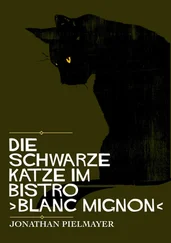“Need a pen?” the boy next to her whispered. She started. His voice was soft, and had, of all things, a Southern accent; he looked at her simply and with his index finger pushed the hair back behind his ear.
“No thanks,” said Molly. The moment of admiration had passed, and the slide was gone. “I don’t have any paper anyway.”
He smiled. After a minute, not looking at her, he leaned on the armrest between them so his head was closer to hers. “Can I ask you something?” he whispered. “Are you even a student here?”
Molly’s heart raced a little in the near-darkness; she said nothing.
“Because,” he said, whispering now, still not looking at her, “it’s almost midterms, and this is only the third time you’ve been in here.”
She considered getting up to leave, but there was nothing threatening in his manner — just curious. The professor went on talking.
“No,” she said finally, in a whisper. Their heads were almost touching in the darkness, though they didn’t look at each other. “My brother goes here. I live with him, and I read through his course catalogue, and sometimes I go to classes if they look interesting.”
“Well, I admire that,” he said, and sat back.
A half hour later the lights went up, and Molly tried not to look at the boy to see what he would do, with this new advantage he held over her.
He stacked up his books, exhaled as if satisfied, and smiled at her.
“May I ask your name?” he said.
His manner was almost courtly. But there was no exaggeration in it; she could tell that he wasn’t about to ask her out.
“Molly,” she said.
He put out his hand. “John Wheelwright,” he said. They shook hands, which made her laugh a little. He blushed, and stood up to go.
“Molly, will I see you again?” he asked.
OSBOURNE OFFERED TO send a car to the Washington airport, but seemed delighted with John’s offer to rent a car and drive the two and a half hours to Charlottesville himself. At the last minute he upgraded to a convertible and paid the difference in cash. He didn’t know what he was expecting to feel: the airport was like an airport anywhere, Highway 29 like all highways; the damp heat was the only thing that gave him any sense of geography at all. In a town called Culpeper he turned off the highway for lunch, and there in the dining room of some forgotten country inn he felt a little touch of the South again, the voices like his inner voice, the dark interiors and ceiling fans, the old locals who regarded his long hair and fancy car with a hostile opacity no one from Manhattan could ever have understood. He would have driven the back roads the whole rest of the way, but he had told Osbourne that he would be there in plenty of time for dinner, and he didn’t want anyone to worry.
Charlottesville itself, from the car at least, was a disappointment. Every midsized city he went to nowadays — Columbus, Lexington, Eugene, no doubt Omaha just a week from now — looked the same, the chain hotels and chain stores, the strip malls and overused local roads, the grotesque boosterism that led to the too-expensive Center for the Performing Arts. Only the sight of the Rotunda, as he inched along Ivy Road on the way to the Courtyard Marriott where he would be staying, fulfilled any longing for a sense of the verticality of time. He had visited his cousin at UVA two or three times as a teenager, and the way the empty lawn stretched out before that imposing dome was all he remembered of the whole city.
The jammed roads, the strip bars, the prefab apartments: John kept thinking, almost in spite of himself, how Rebecca would hate it all. He acted with faith in the best possible outcome, which was that the trip would go well, and Rebecca would be surprised and converted by John’s own enthusiasm, and they would move down South to restart their careers together without any sense of pessimism or martyrdom. This vague, sentimental refrain was really a way of keeping at bay a more surprising and threatening feeling: which was not simply that it would be possible for John to start over by breaking it off with her, but that there was a dangerous appeal — an element of subversion, of role reversal — in being the one who leaves.
The Courtyard Marriott was a long two-story corridor by the highway; beyond the windows, a neatly kept grass embankment and then nothing. John dropped his bag in his room, locked the door again, and headed down the hall to Osbourne’s suite. Candy machines, ice machines, the Rube Goldberg-esque maid’s cart, the antiseptic, shadowless light. Osbourne had been living and working in these rooms for months, not to save money but because he didn’t care where he lived, beyond the idea that he didn’t have to waste minutes thinking about emptying his own trash or changing his sheets. When the door opened it was clear from the mess that he was indeed in Osbourne’s bedroom, this despite the fact that the table, dresser, and even the walls had huge sheets of drawing paper taped to them. A laptop sat in the middle of the unmade bed.
He acted as if John had just come from the other wing of the Marriott rather than across the Mason-Dixon Line. “You’re here,” he said, and turned to walk back into the room. “Good. Let me just find some shoes. We’ll go take a quick tour of the house and we’ll head over to join the others.”
“Others?” John said. Osbourne didn’t answer. He kicked gently with his stockinged feet through the piles of carefully executed architectural drawings on the floor until he uncovered a pair of black suede shoes.
Osbourne owned a loud little Triumph; John followed in his own car as they drove well out of the city center, into the older districts far from the highway. John couldn’t help smiling with pleasure just at the sight of the sprawling, colonnaded antebellum houses, with the great chandeliers hanging above the portico. Some had small historical markers, too small to read from the road, mounted on the wall beside their oversize front doors. John was lost in admiring the sheer arrogant beauty of them, barely paying attention to where he was going, when he noticed Osbourne’s turn signal was on. He followed, amazed, as the Triumph turned left on to a long driveway which led to one of the mansions.
They passed beneath a porte-cochere to a parking area in the back. Tarpaulins covered some construction debris, and a stack of windows leaned against the steps to the kitchen door.
“This is it?” John said, in a higher voice than he would have liked.
Osbourne was already out of the car, his eye roving critically, but smiling all the same.
“Built before the war,” he said. “But the previous owner messed with some of the original interior about sixty years ago, which is a break for us actually, because it’s usually impossible now to get permission to touch anything in the really genuine antebellum homes.” He opened the back door with a key, and they walked into the empty kitchen. Osbourne must have noticed the look on John’s face. “You know the story of Motown Records?” Osbourne said. “They operated out of a row house in a residential neighborhood in Detroit. On a typical day you had people recording backing vocals in the bathroom, people in the living room typing press releases, people working out bridges on the porch. That’s the feel that I want here. Not to make us all feel like we’re a family or any corporate bullshit like that. But work that you do in a place that doesn’t really look like a workplace always has that improvisatory feeling. You know?”
They went through all four stories, room by room; John stopped counting after twenty. Most of the rooms were still empty except for paint cans or stacks of wallboard. A few drafting tables were already set up, and a walk-in closet whose door had been removed was packed with unopened boxes of video equipment. But despite what Mal had said, it seemed that little of the house’s interior structure had been touched, and even unfurnished it was easy to recognize in each room what must have been its old incarnation: a child’s bedroom, a den or study, a servant’s quarters, a pantry. Apart from the profligate size of it, it looked, in a ghostly way, as if it were the result of a careful excavation, like any number of rich people’s homes John had been in as a child; and he briefly entertained the feeling — absurdly paranoid, yet at the same time not altogether unwelcome — that Osbourne had known all this somehow, that he had had John researched in some way. No one else was in the mansion. The sun poured through the uncurtained windows.
Читать дальше












